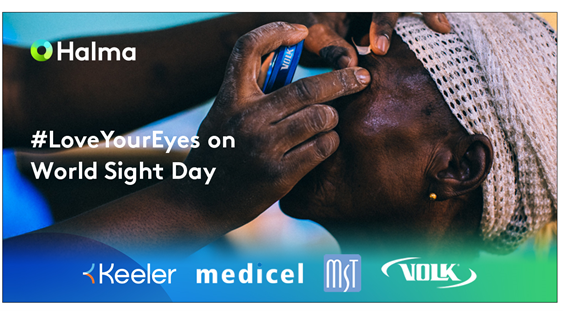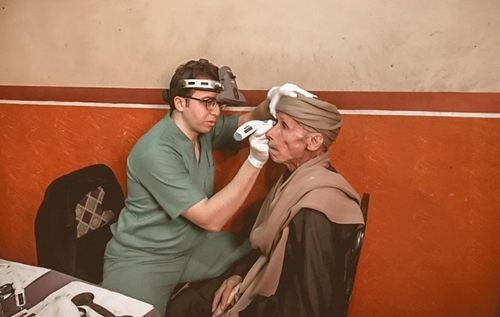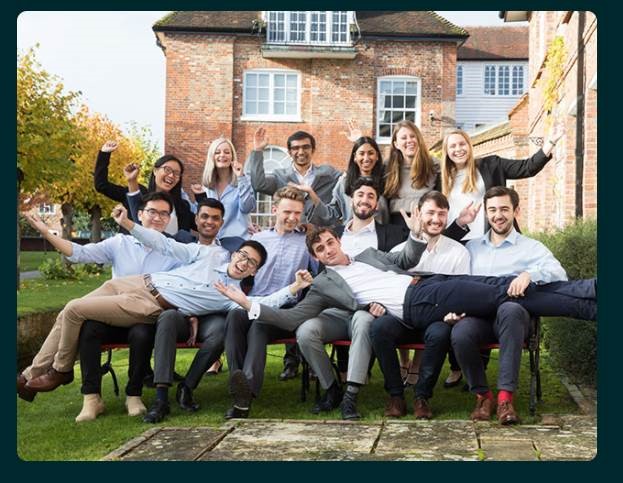Being able to see is something many of us take for granted. It is only when we are affected by some form of vision impairment that we realise how important eyesight is for every aspect of our lives.
Globally, at least 2.2 billion people have a vision impairment, and over half of these suffer from conditions which can be easily prevented or reversed.
Sadly, many people affected by preventable blindness live in remote places without access to regular screening and specialist care. A lack of early treatment means the number of people with vision impairment worldwide is expected to grow. Loss of vision severely impacts the quality of life for people of all ages, but it also has a large economic impact. The World Health organisation estimates that annual global costs of productivity losses associated with vision impairment from uncorrected sight loss alone is US$ 270 billion.

As a global group of technology companies committed to growing a safer, cleaner, healthier future for everyone, every day, Halma has several eyecare companies whose technologies help provide easier access to healthcare. Volk, Keeler, Medicel and MST make specialist equipment for ophthalmologists, opticians, optometrists and other healthcare professionals. Their technologies enable healthcare professionals to monitor patients’ eye health, often in remote locations, and carry out affordable and effective treatments.
Monitoring Eye Health
The Volk VistaView® is a compact and easy-to-use retinal camera that enables people who live far from healthcare facilities to have their eyesight tested. The technology can be used with minimal training. A healthcare worker in the field can take high quality images of a patient’s eye and then upload them for assessment by a trained eyecare professional miles away in a central hospital. The technology has been adopted globally since its launch during the COVID pandemic to save sight across the world. The camera has recently been recognised for its innovation by one of the world’s most important and prestigious design prizes, the Red Dot design award.
Keeler provide clinicians with special headsets that help examine the retina. These headsets offer a wide field of view, enabling doctors to diagnose retinal detachments, tears and other conditions. This technology, known as a binocular indirect ophthalmoscope (BIO), is used globally to reach patients in areas where access to medical care is limited. Recently ophthalmologists shared their experience examining hundreds of patients on humanitarian trips to Guatemala and Egypt using Keeler’s BIOs and portable slit lamps.

Enabling treatment
Medicel makes specialist lens injectors that allow surgeons to make small incisions during cataract surgery and insert a tiny lens that corrects people’s sight. Its technology enables 5 million new lenses to be implanted each year, saving the eyesight of millions. Medicel collaborated with Aurolab, a manufacturer based in India, to create high-quality intraocular lens technology. Aurolab has brought this innovation to cataract patients in India, helping them regain near-perfect vision and enabling them to return to work.
MSTsurgical instruments help restore or improve sight for patients all over the world. Given more than 94 million people are blind or visually impaired from cataracts, MST has collaborated with Daybreak Vision Project, a non-profit team of dedicated professionals who are passionate about bringing sight-restoring cataract surgery to those greatest in need.
Small steps to the eradication of preventable blindness
We know that tackling preventable blindness is too big a challenge for any one organisation or country to solve alone. Working together, businesses and governments can expedite the certification of high-quality healthcare technology, making it easier for medical professionals to rollout critical care to even more people.
By collaborating with organisations around the world, we continue to see progress. For example, in 2019, we partnered with the Himalayan Cataract Project (HCP) that works in countries where access to affordable eye care is harder to come by. Volunteers were given tools and training to spot conditions such as glaucoma before it was too late, helping to save the sight of thousands. Our companies Keeler and Volk donated vital sight-saving technology to save the eyesight of 8,000 people in Ghana as part of our Gift of Sight campaign.
We are proud to live our purpose by working together to increase access to healthcare to grow a healthier future for everyone, every day.


